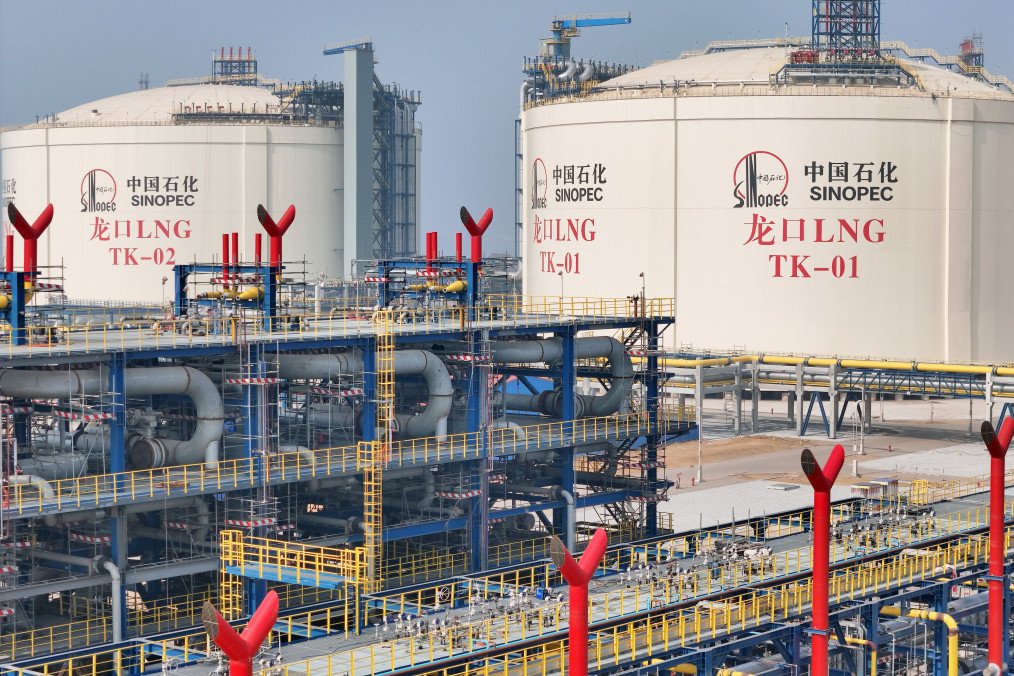- Category
- Latest news
Chinese State Oil Companies Pull Back From Russian Oil Amid Tougher US Sanctions

Chinese state-owned oil companies are scaling back or halting Russian crude imports in March due to newly tightened US sanctions, Reuters reported on March 14.
Sinopec, China’s largest oil refiner, along with Zhenhua Oil, has completely suspended purchases of Russian oil, while PetroChina and CNOOC have reduced their volumes, according to industry insiders.
A source at Sinopec stated that the company stopped purchasing Russian crude to conduct additional compliance checks and assess the potential impact of future US-Russia negotiations regarding the war in Ukraine.
“If the talks lead to an easing or removal of US sanctions on Russian oil, we may resume purchases,” the source said on condition of anonymity.
Chinese firms have been avoiding transactions with suppliers that are facing fresh US sanctions.
“For now, they are pausing to figure out if there are ways to circumvent these restrictions,” a trade representative familiar with Russian suppliers told Reuters.
PetroChina, a key buyer of Russia’s premium ESPO (BCTO) crude from Rosneft , has continued seaborne shipments in March but at reduced volumes, according to two sources.
CNOOC, another major importer and trader of Russian crude, has also cut its shipments.
Despite reductions in seaborne imports, PetroChina is still receiving 800,000–900,000 barrels per day via pipelines under a long-term agreement with Siberian oil fields. Meanwhile, Sinopec is compensating for the drop in Russian imports by increasing purchases from West Africa, the Middle East, and Brazil.

Shipments of Russian crude to China fell to 969,000 barrels per day in February—the lowest level since December 2022—down from 1.01 million barrels per day in January, according to energy analytics firm Kpler. In the first two months of 2025, China’s Russian oil imports averaged 990,000 barrels per day, a drop of 270,000 barrels per day compared to November-December 2024 levels.
The pullback by China’s state oil firms has hit Russian crude prices, further reducing Moscow’s energy revenues and increasing economic pressure ahead of potential ceasefire talks with Ukraine, Reuters noted.
The move comes after the US tightened sanctions on Russian oil and banking. Washington recently decided not to renew a key general license that had allowed certain transactions through sanctioned Russian banks.
According to a Fox News source within the Trump administration, Russian banks had been able to process dollar-based transactions related to energy payments until March 12. With the license now expired, European countries face the risk of sanctions if they continue buying Russian oil.
Earlier, reports emerged that the Biden administration sanctions on Russian oil exports were beginning to take a toll, slashing Moscow’s revenues and forcing suppliers to cut prices.
Chinese refineries scaled back their purchases of Russian oil due to the sanctions and mounting logistical issues, while shipping costs for non-sanctioned vessels have soared, pushing Russian suppliers to offer steep discounts.


-72b63a4e0c8c475ad81fe3eed3f63729.jpeg)
-a083fcdedd4caa1998c9ea099b5016e2.jpg)



